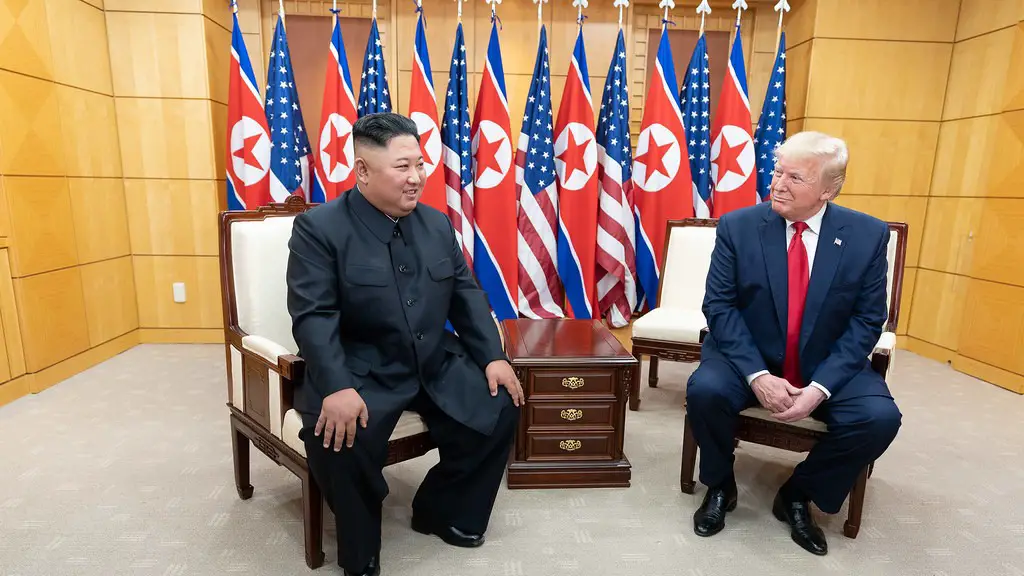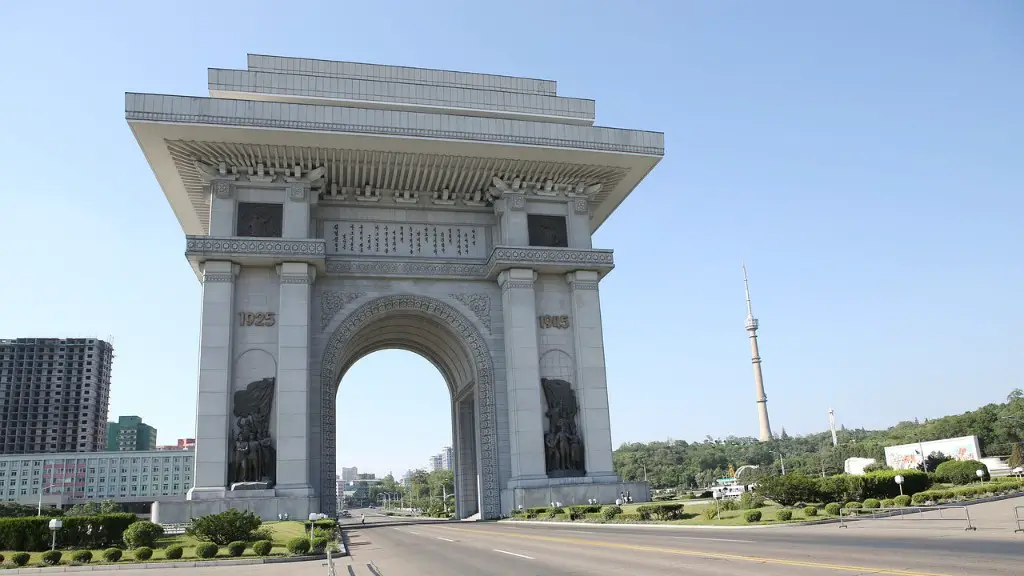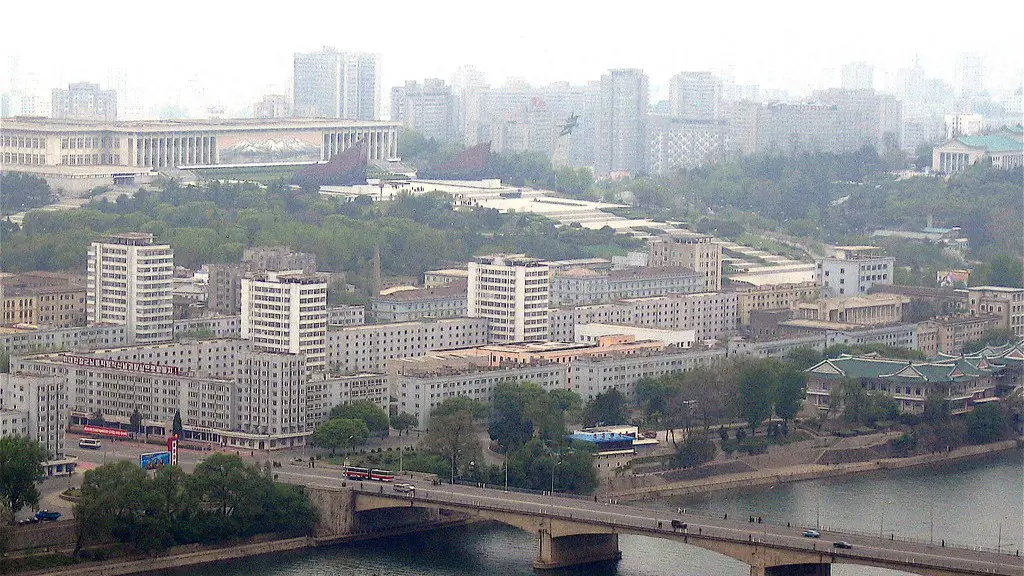At the forefront of many news cycles is the ever-evolving situation between the United States, South Korea and North Korea. With increased sanctions declared against North Korea and their growing arsenal, it is no wonder that people have debated and questioned a possible attack against their northern neighbor. All things aside, it is important to consider the reasons why a strike against North Korea could be beneficial, as well as its potential drawbacks. Below are a few reasons why an attack against North Korea should be considered.
Firstly, an attack against North Korea would be beneficial for both South Korea and the United States due to its proximity to South Korea. A successful strike would prevent North Korea from continuing to develop weapons of mass destruction such as nuclear weapons, preventing them from posing a more serious threat, especially to our ally, South Korea. In addition, an attack would also send a clear and effective message to other restricted countries in the region: that the United States will not sit idly by and allow oppressive countries to infringe upon the rights of the people.
Secondly, North Korea is a nation filled with suffering, both from famine and oppression. It is estimated that over 1.2 million North Koreans were killed in camps since the country’s formation in 1945, and the majority of the North Korean population still suffers from poverty and poor living conditions under the Kim regime. While there has been debate about whether or not an attack would worsen the situation, it is worth considering the potential long-term benefits for the people.
Thirdly, an attack could force the regime to recognize the human right of freedom and aid the people in the development of their economic and political structures. An attack could open up the opportunity for North Koreans to build sustainable economic structures, to have access to adequate healthcare, to gain physical security and to have more constructive interactions with neighbouring countries.
Fourthly, attacking now could also stifle North Korea’s nuclear ambitions. A recent paper in the Bulletin of the Atomic Scientists noted that a surgical air strike “would weaken Kim Jong-un’s government, convince North Korean leaders that regime survival is at risk, and further Pyongyang’s compliance with international demands to halt and roll back its nuclear and missile ambitions.”
Economic Benefits
Firstly, attacking North Korea could open the country to foreign investment. By allowing investment into the North Korean economy, new markets could be created and new jobs generated. This could kickstart its dormant economy and bring much-needed foreign currency into the country.
Secondly, an attack could open the North Korean borders to the world, allowing for the movement of goods, people, information and services between the United States, South Korea and North Korea. This open access could provide economic opportunities and make it easier to send aid and support to the North Korean people.
Thirdly, an attack could also create the opportunity for North and South Korea to establish a cooperative political and economic relationship. A unified Korea would be more powerful and prosperous, and it could also serve as a model for other divided countries, like India and Pakistan, to bridge their differences and cooperate.
Fourthly, an attack could weaken the Kim regime’s control over the nation’s economic resources, creating a more flexible and open economy. This could lead to more economic opportunities outside of the government, which could reduce corruption and increase the incomes of everyday citizens.
Risks
Firstly, it is important to note that there are potentially severe repercussions of a strike against North Korea. The nation has a formidable military and the capability to engage in a protracted conflict with the United States and its allies. This could result in heavy damage to South Korea and exacerbate existing tensions with China and Russia.
Secondly, North Korea could retaliate by launching attacks against the United States, its citizens, and its allies. This could trigger a massive conflict with potentially devastating consequences. North Korea has developed an intercontinental ballistic missile system, which could be used to target major cities and cause millions of civilian casualties.
Thirdly, North Korea could also retaliate against South Korea by cutting off access to vital resources such as food and water or using cyberattacks to disrupt essential services. This could cause massive disruption in the country, likely leading to large-scale unrest and civil unrest.
Fourthly, attacking North Korea could prompt an even more severe and widespread embargo of the nation’s food, goods and resources. This could significantly worsen the already dire living conditions of many North Koreans, who already have limited access to food, clean water, and electricity.
Political Impact
Firstly, an attack on North Korea may have a destabilizing effect on the region. This could lead to increased tensions and increased military activity in the region. A military conflict between the United States, South Korea and North Korea could also further complicate already strained diplomatic relations with China and Russia.
Secondly, an attack may also encourage North Korea to increase its efforts to acquire nuclear weapons and other weapons of mass destruction, thereby making the region even more dangerous. North Korea’s government sees itself as surrounded by hostile forces and believes that nuclear weapons are its only means of protection.
Thirdly, the risk of an attack on North Korea may also encourage other nations, such as Iran, to pursue nuclear weapon programs, thus increasing the risk of further nuclear proliferation. This could lead to an arms race in the Middle East, something that could further destabilize the region, worsen existing conflicts and erode peace efforts.
Fourthly, attacking North Korea could also lead to a political crisis between the United States and its allies. Japan, South Korea, and other key allies may disagree with the United States’ decision to attack and this could eventually lead to a breakdown in diplomatic ties.
International Opinion
Firstly, attacking North Korea could lead to a rift between the United States and its allies. Japan, Australia, France, and other countries have been vocal in their criticism of any action taken against the North and could quickly break off political and diplomatic ties with the United States, as well as impose economic sanctions should the US act unilaterally.
Secondly, an attack on North Korea could add fuel to the fire of international criticism against the United States. US actions would likely be seen as provocative and aggressive, contributing to the erosion of their international image.
Thirdly, attacking North Korea could further incite China and Russia, two of the world’s most powerful nations. These two nations have strong ties to North Korea and could quickly step in to protect is interests should the US act unilaterally. This could lead to further confrontation between these nations and the United States.
Fourthly, attacking North Korea could also have a negative impact on global security. An attack could lead to an even more unstable region, and could potentially provoke further attacks or military action by other nations in the region, leading to an even more dangerous international situation.





